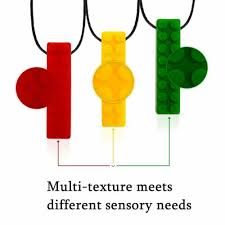PiCA or not PiCA? Why is your child mouthing inappropriate objects?
- Ekaterina Fields
- May 3, 2021
- 4 min read
Updated: May 6, 2021

Many parents of children with the CDK13-related disorder, Angelman syndrome, CTNNB1 syndrome, Hao-Fountain Syndrome / USP7, Autism and other developmental and neurological conditions are concerned by their children’s mouthing behaviours. A Google search will suggest to you that your child may have PiCA - a disorder when children eat anything they find from food to non-edible things like soil, glue or paint.
This issue was raised in the American TV Series “Bull” (Season 3, episode 22) where a woman is accused of murdering her little step-daughter. But it turns out that the girl’s mother never told her ex-husband’s new wife about a condition the little girl had. Can you guess what it was? Yes, it was PICA. The little girl died from having eaten too much salt she had found in a
kitchen cabinet - enough to die from it.
But is it always PICA, and how do you tell the difference?
There are three possible explanations for inappropriate mouthing.
Your child has a mineral deficiency, general or particular, most likely in iron. In this case the mouthing will get much better and may go away after a few months of giving your child a multivitamin, and an iron supplement if needed. In the UK, after researching the market, I came to like the ViridiKid multivitamin & mineral by Viridian (the jar is glass, the lid is metal, and the capsules are super-tiny) . You should give your child a multivitamin anyway to support whatever needs their body has on its process of growth and development. And do not forget Omega-3s, essential for brain development. But re iron deficiency, it’s best to confirm it with a blood test. You can request it with your GP and the referral is easily made straight away in the UK. If iron deficiency is confirmed, I recommend "Food-grown plus" by Wild Nutrition, as the packaging is also plastic-free, and there is a bit of vitamin C and Molybdenum to help iron absorption. Brilliant. This helps avoid constipation - the usual companion of iron supplementation.
Your child has PiCA.
Your child is seeking sensory input. Mouthing is a strong way to feel several senses at once: texture, temperature, taste. This, and not PICA, is the most common reason for a child mouthing random things. In this case, mouthing may be just one of several sensory seeking behaviours, including self-stimulation, liking of loud music, of any videos, of hot baths, touching, hitting, getting hugs, and excessive eating.
How do you tell the difference between PICA and a sensory seeking mouthing behaviour? One way is to ask whether your child swallows what they put in their mouths, or do they keep it in the mouth? You can ask yourself or you can ask your child. Older children are often fully capable to communicate that they just want to feel it, even if they do not actually like the taste at all, and that they do not swallow it. If they do, it may be because they don’t know how to spit it out. PICA is an "eating disorder", not a "mouthing disorder".
Both PICA and sensory-seeking mouthing behaviours are potentially dangerous and even life threatening and the child or the adult affected must be closely supervised. It is imperative that a note on that is included (in the UK) in your child’s Education and Health Care Plan (EHCP) with your council's SEN Department and the school, and that a full time Teaching Assistant (TA) is provided for by your council (it’s called the Local Offer) to keep your child safe.
An Occupational Therapist will suggest that you:
a) put out of reach any and all objects and foods you don't want your child to over-indulge in.
b) provide foods your child can eat as much as they like, such as fresh mini-peppers, baby carrots, pieces of celery, slices of apple.
c) purchase chewies - silicone objects you can make available to your child whenever they feel the urge to mouth something, especially outside of home. Many come on a cord and you can hang them around your child’s neck. It’s a great idea to ensure the chewie doesn’t get lost on day one. In my experience, it's good to provide several shapes of chewies to your child to explore. There are different options on Amazon and from any special needs shop.
The child in the main picture above has a silicone chewie top attached to his pencil. The other options I like are these:
You might ask what the prognosis is. The answer is that it is very individual and will depend on mental development over the years. A healthy child usually stops mouthing by about two years of age. A child with special needs can, over time, achieve control over their behaviour. This could potentially be quite successful and nearly complete. Patience and kindness, and providing for our child's special needs is what we do, and progress will come. Best of luck on your journey.















Comments